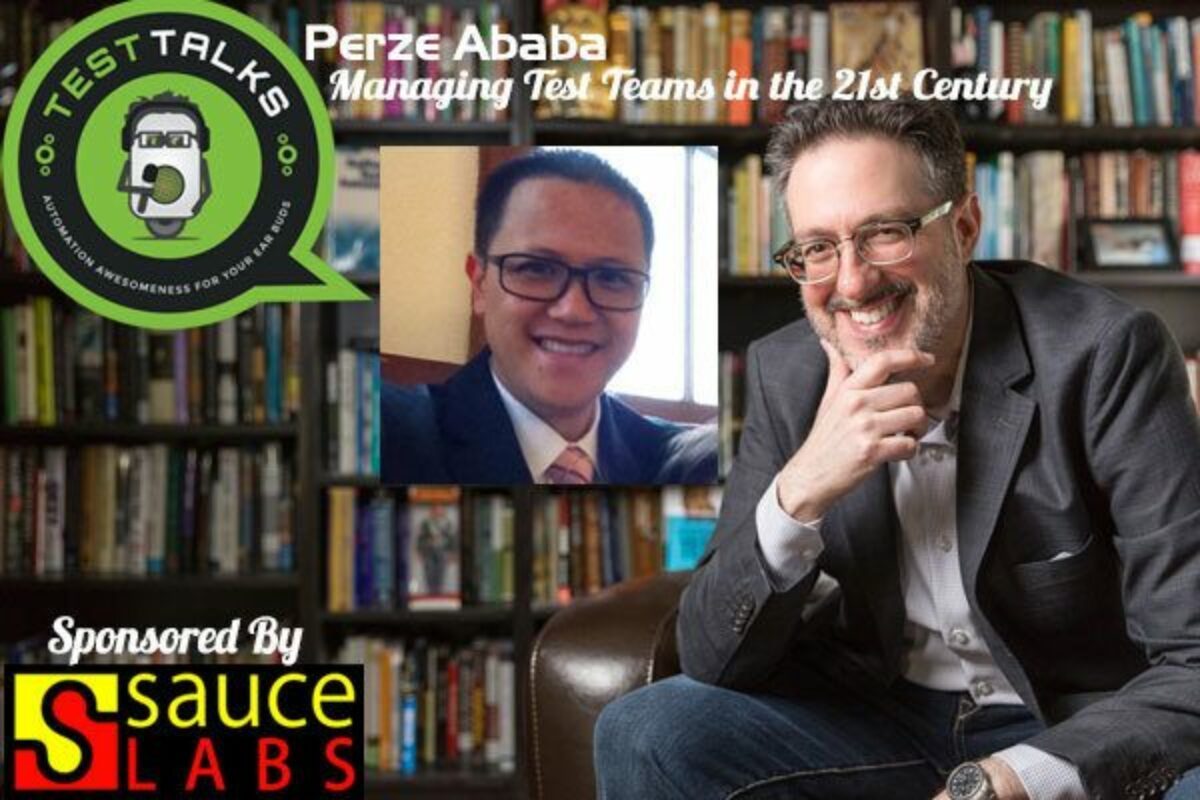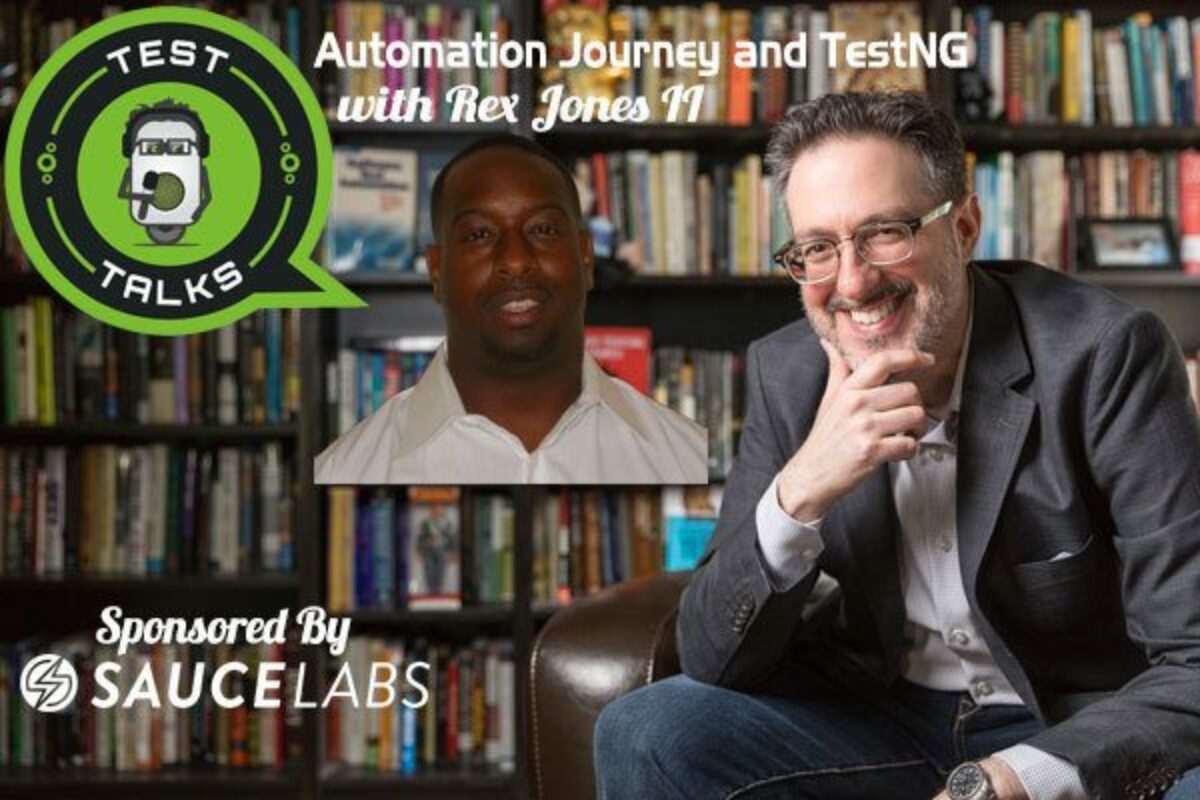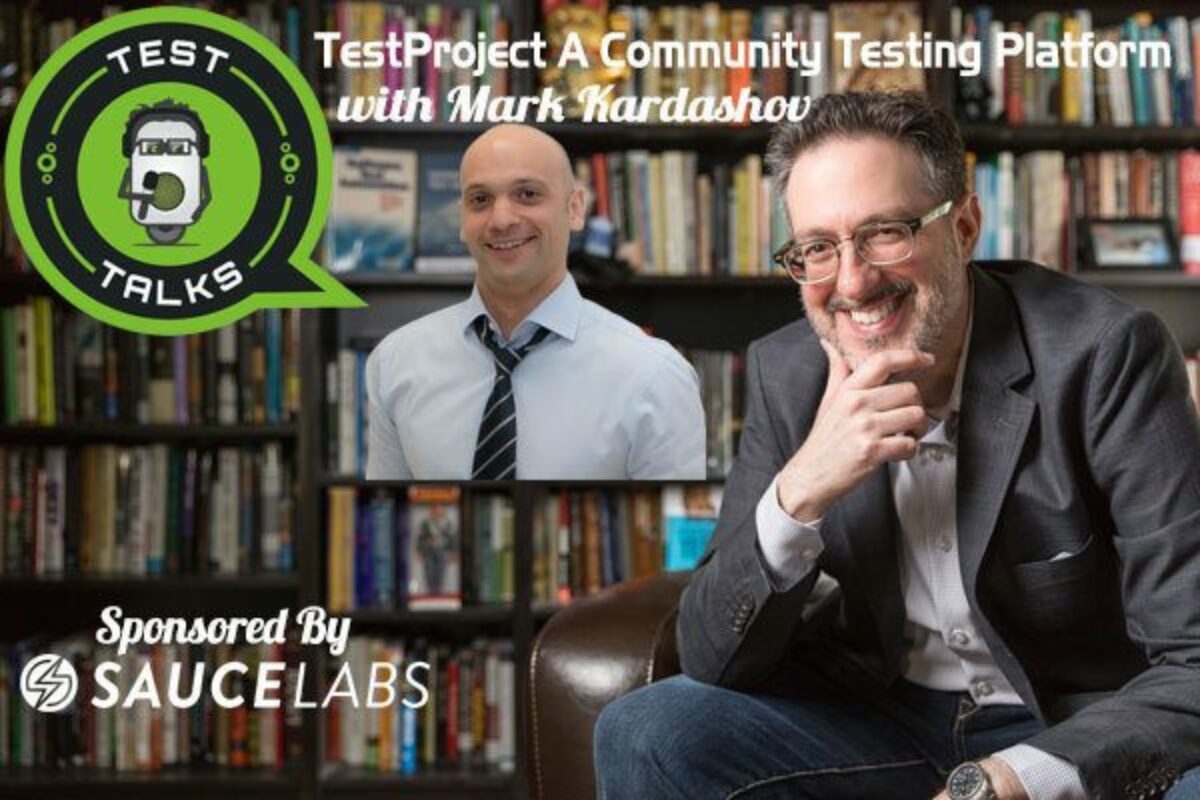Managing Test Teams in the 21st Century
Many test teams have undergone major changes over the past few years. With more and more companies moving towards Agile and DevOps best practices, companies are scrambling to understand how the role of testers fits into this new way of developing software.
In this episode, Perze Ababa shares with us his experience in running a testing organization in the 21st century, and discusses the tools and techniques that can help anyone improve their testing efforts.
About Perze Ababa

Perze Ababa is a Software Testing Manager for Johnson & Johnson‘s IT Application Services, Consumer R&D group, and is responsible for the team providing testing related services and test tooling support for J&J Consumer Platform and its websites. With over 15 years of software testing experience, Perze has tested for teams that built multi-tiered desktop applications, websites and native applications for companies such as nytimes.com, ivillage.com and was recently the Director of Test Engineering for Viacom Media Services. He has been a member of the Association for Software Testing since 2010 and have participated in co-facilitating some BBST classes. He is also a founding member of the NYCTesters meetup group.
Quotes & Insights from this Test Talk
- We just started working with Applitools, and we are using that extensively to look at the visual component because part of the scope that we have in our work is really more on upgrades and just looking at functionality and performance and usability and all these other things just shows you a certain part of the story or just a certain piece of information that the value proposition that we have with having visual test, or and having a visual testing tool that can actually provide you with a better way to compare multiple sites or multiple versions of a site in multiple environments is very helpful to us at the moment.
- Numbers are definitely misleading because that remain 20% might be the one that makes or breaks your business. I guess it's very challenging to be able to get into a one-to-one correspondence with if an x percentage of it passed then how is that related to something that's good enough? What we really do at this point is that we have a collated test results and I end up- Me, as a test manager, I work with our head of engineering, our head of product, and head of product management, and we go through the results. See which ones we know would affect it, and then as a group we collectively make a decision on, “Okay, we'll push this out but we're going to have our caveats when we know, yeah, we'll push this feature out but we know these are going to be problematic if you do A, B, and C.”
- When you say we've done agile, it's probably better off it I said, “We've done a form of agile but it's really based also on the culture of the team and our understanding on how we produce software.” If you simplify all of it we work as a team to be able to create software that brings value back to the company and however we do it as long as we align with the rules and regulations of the context that you're in, then you should be okay. I mean there's going to be some challenges when it comes to waiting for things like if you want to have something provisioned and the corporate policy takes a lot longer that what you're used to, there has to be a way for you to be able to inform your boss of that risk so that person can then help into accelerating certain things, or if not, just do something else, there's always something in the backlog that you can work on.
- Most of the people that work for me that have been very successful or that worked with me that has been very successful are the ones that have that curiosity and the ones that are really fast learners. A lot of times they're not afraid to experiment, they're not afraid to fail. One thing that's really common from these folks is that they learn for the better because you can put in your resume or you can show that you have the skill to know how to use something but considering how fast paced our world is now when it comes to the turnover of technology and the knowledge of using that technology, I definitely prefer testers who are very independent in their learning and can pretty much think on their feet.
- I cannot stand micromanaging other people, I want people to be able to bring their own ideas or even challenge me with better ideas. I try to keep up to speed with the technologies that were used when it comes to testing but also I do stay in the trenches with the testers as well and having the experience to just be up to date with what are we actually doing and understanding what our challenges are.
- Don't ever stop learning, that's the one thing that I would encourage anyone that's in the software testing field. Now that we have a very accessible and connected world you can actually find a lot of authors, people who are pretty much experts in our field that you can easily reach out to in Twitter or Facebook. I've always seen these people like Matt Heusser, James Bach, Michael Bolton, these folks are people that talk back. You don't hit an expert wall when you ask them a question but they do work with you and help you with your interest if you are interested in improving and becoming a software tester.
Resources
- Applitools – visual validation testing tool
Connect with Perze
- Twitter: @perzeababa
- Blog: http://perze.blogspot.com/
May I Ask You For a Favor?
Thanks again for listening to the show. If it has helped you in any way, shape or form, please share it using the social media buttons you see on the page.
Additionally, reviews for the podcast on iTunes are extremely helpful and greatly appreciated! They do matter in the rankings of the show and I read each and every one of them.

Test Talks is sponsored by the fantastic folks at Sauce Labs. Try it for free today!





